第68章 CHAPTER X(2)
If it is not absolute treason, I do fervently request that you will contrive, in some way or other, to let me have a sight of your face. Yet I feel, at the same time, that I am making a very foolish and almost impracticable demand; yet this is only four miles from B- !""March 21st.
"You must excuse a very short answer to your most welcome letter;for my time is entirely occupied. Mrs.--expected a good deal of sewing from me. I cannot sew much during the day, on account of the children, who require the utmost attention. I am obliged, therefore, to devote the evenings to this business. Write to me often; very long letters. It will do both of us good. This place is far better than -, but God knows, I have enough to do to keep a good heart in the matter. What you said has cheered me a little.
I wish I could always act according to your advice. Home-sickness affects me sorely. I like Mr.--extremely. The children are over-indulged, and consequently hard at times to manage. DO, DO, do come and see me; if it be a breach of etiquette, never mind. If you can only stop an hour, come. Talk no more about my forsaking you; my darling, I could not afford to do it. I find it is not in my nature to get on in this weary world without sympathy and attachment in some quarter; and seldom indeed do we find it. It is too great a treasure to be ever wantonly thrown away when once secured."Miss Bronte had not been many weeks in her new situation before she had a proof of the kind-hearted hospitality of her employers.
Mr.--wrote to her father, and urgently invited him to come and make acquaintance with his daughter's new home, by spending a week with her in it; and Mrs.--expressed great regret when one of Miss Bronte's friends drove up to the house to leave a letter or parcel, without entering. So she found that all her friends might freely visit her, and that her father would be received with especial gladness. She thankfully acknowledged this kindness in writing to urge her friend afresh to come and see her; which she accordingly did.
"June, 1841.
"You can hardly fancy it possible, I dare say, that I cannot find a quarter of an hour to scribble a note in; but so it is; and when a note is written, it has to be carried a mile to the post, and that consumes nearly an hour, which is a large portion of the day.
Mr. and Mrs.--have been gone a week. I heard from them this morning. No time is fixed for their return, but I hope it will not be delayed long, or I shall miss the chance of seeing Anne this vacation. She came home, I understand, last Wednesday, and is only to be allowed three weeks' vacation, because the family she is with are going to Scarborough. I SHOULD LIKE TO SEE HER, to judge for myself of the state of her health. I dare not trust any other person's report, no one seems minute enough in their observations. I should very much have liked you to have seen her.
I have got on very well with the servants and children so far; yet it is dreary, solitary work. You can tell as well as me the lonely feeling of being without a companion."Soon after this was written, Mr. and Mrs.--returned, in time to allow Charlotte to go and look after Anne's health, which, as she found to her intense anxiety, was far from strong. What could she do to nurse and cherish up this little sister, the youngest of them all? Apprehension about her brought up once more the idea of keeping a school. If, by this means, they three could live together, and maintain themselves, all might go well. They would have some time of their own, in which to try again and yet again at that literary career, which, in spite of all baffling difficulties, was never quite set aside as an ultimate object; but far the strongest motive with Charlotte was the conviction that Anne's health was so delicate that it required a degree of tending which none but her sister could give. Thus she wrote during those midsummer holidays.
"Haworth, July 18th, 1841.
"We waited long and anxiously for you, on the Thursday that you promised to come. I quite wearied my eyes with watching from the window, eye-glass in hand, and sometimes spectacles on nose.